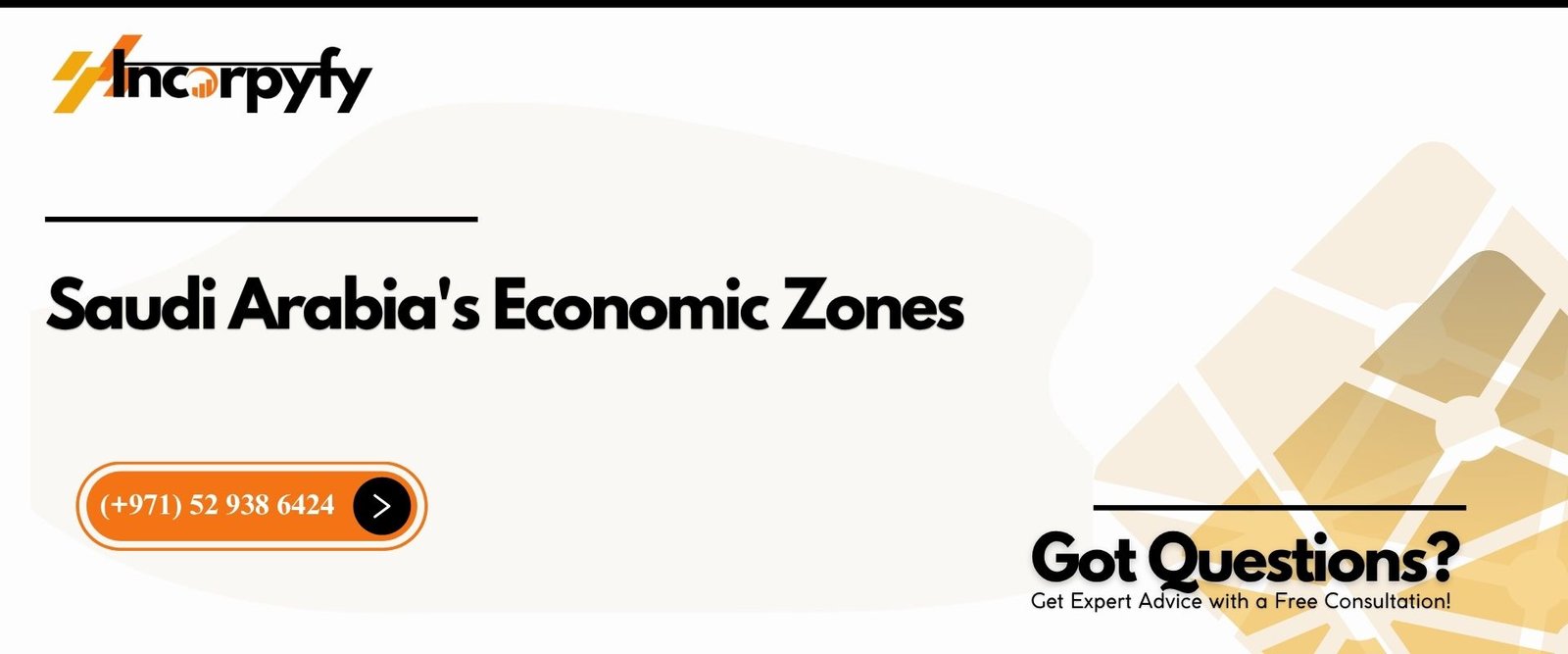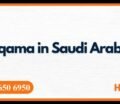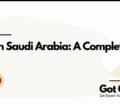
Saudi Arabia’s ambitious Vision 2030 has transformed the Kingdom into a global investment hub through the development of cutting-edge economic cities, special economic zones (SEZs), and industrial cities. These strategic developments are revolutionizing the Saudi economy, creating unprecedented opportunities for businesses, investors, and entrepreneurs looking to establish operations in one of the world’s most dynamic markets.
Understanding Saudi Arabia’s Economic Development Framework
The Kingdom’s economic transformation is built on a foundation of strategically planned urban developments designed to diversify the economy away from oil dependency. These mega-projects encompass various sectors including manufacturing, technology, logistics, tourism, and renewable energy, making Saudi Arabia an attractive destination for foreign direct investment (FDI).
The Role of Economic Cities in Saudi Arabia’s Vision 2030
Economic cities serve as integrated urban developments that combine residential, commercial, and industrial components within a single framework. These cities are designed to create sustainable ecosystems that attract businesses, residents, and visitors while promoting economic growth and job creation.
Major Economic Cities Driving Saudi Arabia’s Growth
Saudi Arabia’s major economic cities represent the cornerstone of the Kingdom’s economic diversification strategy. These strategically planned urban developments integrate residential, commercial, and industrial zones to create comprehensive business ecosystems. Each city offers unique advantages, from advanced infrastructure to specialized industry clusters, attracting international investors and multinational corporations seeking strategic market entry points.
NEOM: The Future City
NEOM stands as Saudi Arabia’s most ambitious mega-city project, spanning 26,500 square kilometers in the northwest region. This futuristic city represents a $500 billion investment and aims to become a global hub for innovation, technology, and sustainable living.
Key features of NEOM include:
- The Line: A 170-kilometer linear city powered entirely by renewable energy
- Advanced artificial intelligence integration throughout the city
- Zero-emission transportation systems
- World-class research and development facilities
- Special economic zone status with unique regulations
King Abdullah Economic City (KAEC)
Located on the Red Sea coast, King Abdullah Economic City is one of Saudi Arabia’s most successful economic developments. This industrial city focuses on logistics, manufacturing, and residential development.
KAEC highlights include:
- King Abdullah Port: One of the fastest-growing ports in the world
- Industrial Valley: A major manufacturing hub
- Residential communities accommodating over 2 million people
- Free zone benefits for international businesses
- Strategic location connecting Asia, Africa, and Europe
Jazan Economic City
Jazan Economic City serves as a vital component of Saudi Arabia’s southern development strategy. This special economic zone focuses on heavy industries, petrochemicals, and mineral processing.
Notable aspects include:
- Jazan Refinery: One of the world’s largest integrated refineries
- Primary Industries Cluster: Supporting downstream manufacturing
- Port of Jazan: Facilitating international trade
- Tax incentives for qualifying businesses
- Proximity to African and Asian markets
Special Economic Zones: Catalysts for Business Growth
Special Economic Zones in Saudi Arabia serve as powerful economic catalysts, offering businesses unprecedented opportunities to establish operations with minimal regulatory barriers. These zones provide streamlined processes, competitive incentives, and world-class infrastructure that significantly reduce business establishment costs and operational complexities, making them ideal for foreign companies seeking Middle Eastern market entry.
Benefits of Operating in Saudi SEZs
Special Economic Zones in Saudi Arabia offer numerous advantages for businesses seeking to establish operations in the Kingdom:
- Tax exemptions and reduced corporate tax rates
- Streamlined business registration processes
- 100% foreign ownership in most sectors
- Simplified visa procedures for employees
- Access to world-class infrastructure
- Customs duty exemptions on imports and exports
- Dedicated support services for investors
Key SEZ Locations
Ras Al Khair Industrial City
This industrial city specializes in mining, metals, and petrochemicals, leveraging Saudi Arabia’s abundant natural resources.
Wa’ad Al Shamal Industrial City
Located in the northern region, this zone focuses on phosphate mining and petrochemical manufacturing.
Sudair Industrial City
A key manufacturing hub supporting automotive, construction materials, and consumer goods production.
Industrial Cities: Manufacturing Powerhouses
Saudi Arabia’s industrial cities represent the backbone of the Kingdom’s manufacturing sector, combining strategic locations with state-of-the-art facilities and integrated supply chains. These manufacturing hubs leverage Saudi Arabia’s abundant natural resources, skilled workforce, and competitive energy costs to create cost-effective production environments that serve both domestic markets and international export opportunities.
Jubail Industrial City
Jubail Industrial City is one of the world’s largest petrochemical complexes and serves as a model for industrial development in Saudi Arabia.
Key features include:
- Over 200 manufacturing facilities
- Advanced petrochemical production
- Integrated utilities infrastructure
- Research and development centers
- Skilled workforce training programs
Yanbu Industrial City
Yanbu Industrial City focuses on petrochemicals, oil refining, and renewable energy manufacturing.
Advantages include:
- Strategic Red Sea location
- Export-oriented manufacturing
- Renewable energy projects
- Advanced logistics infrastructure
- Environmental sustainability initiatives
Investment Incentives and Business Support
The Saudi government provides comprehensive investment incentives and business support services designed to attract foreign investment and facilitate business growth. These financial benefits and regulatory advantages include tax exemptions, duty-free imports, streamlined licensing, and dedicated investor services, creating an environment where businesses can thrive while contributing to the Kingdom’s economic development objectives.
Financial Incentives
The Saudi government offers attractive investment incentives to encourage business establishment in economic cities and SEZs:
- Corporate tax exemptions for up to 10 years
- Import duty waivers on machinery and equipment
- Reduced utility costs
- Land lease at competitive rates
- Access to government financing programs
Regulatory Support
Business-friendly regulations in these zones include:
- Simplified licensing procedures
- One-stop-shop services for permits
- Fast-track visa processing
- Flexible labor laws
- Intellectual property protection
Sectors of Focus and Opportunities
Saudi Arabia’s economic cities and industrial zones prioritize high-growth sectors that align with Vision 2030 objectives and global market trends. These strategic sectors include advanced manufacturing, technology innovation, renewable energy, logistics, and healthcare, offering businesses and investors diverse opportunities to establish operations in rapidly expanding markets with significant growth potential.
Technology and Innovation
Saudi Arabia’s economic cities are becoming hubs for technology companies and startups, particularly in:
- Artificial intelligence and machine learning
- Fintech and digital payments
- Healthcare technology
- Smart city solutions
- Renewable energy technologies
Manufacturing and Industry
Priority manufacturing sectors include:
- Automotive assembly and components
- Pharmaceuticals and medical devices
- Food processing and packaging
- Construction materials
- Consumer electronics
Logistics and Trade
The Kingdom’s strategic location makes it an ideal logistics hub for:
- E-commerce fulfillment
- Regional distribution centers
- Cold chain logistics
- International trade facilitation
- Supply chain management
Infrastructure and Connectivity
World-class infrastructure and connectivity form the foundation of Saudi Arabia’s economic cities, enabling seamless business operations and efficient market access. The Kingdom’s transportation networks, digital infrastructure, utilities systems, and logistics capabilities provide businesses with reliable foundations for growth, innovation, and regional expansion while supporting international trade and supply chain management.
Transportation Networks
Saudi Arabia’s economic cities benefit from world-class transportation infrastructure:
- High-speed rail connections
- Modern airports and seaports
- Highway networks linking major cities
- Metro systems in key urban areas
- Logistics parks and distribution centers
Digital Infrastructure
Advanced digital infrastructure supports modern business operations:
- 5G networks across major cities
- Fiber optic connectivity
- Data centers and cloud computing facilities
- Smart city technologies
- Cybersecurity frameworks
Success Stories and Case Studies
Numerous success stories demonstrate the effectiveness of Saudi Arabia’s economic cities and industrial zones in attracting international businesses and fostering economic growth. These case studies showcase how global companies have successfully established manufacturing facilities, research centers, and regional headquarters, achieving operational efficiency, market expansion, and sustainable profitability within the Kingdom’s business-friendly environment.
International Companies in Saudi Economic Cities
Several multinational corporations have successfully established operations in Saudi Arabia’s economic zones:
- Manufacturing giants setting up regional production facilities
- Technology companies establishing R&D centers
- Logistics providers creating distribution hubs
- Pharmaceutical companies building manufacturing plants
- Automotive manufacturers setting up assembly lines
Future Developments and Expansion Plans
Saudi Arabia’s future development plans encompass ambitious projects and expansion initiatives that will further enhance the Kingdom’s position as a global investment destination. These upcoming developments include new economic cities, expanded industrial zones, advanced technology hubs, and sustainable energy projects, creating additional opportunities for businesses to participate in the Kingdom’s continued economic transformation.
Upcoming Projects
Saudi Arabia continues to announce new economic development projects:
- Red Sea Project: A luxury tourism and business destination
- Qiddiya: An entertainment and sports city
- OXAGON: An industrial city within NEOM
- Trojena: A mountain resort and business hub
- Additional industrial clusters across the Kingdom
Investment Targets
The Kingdom aims to attract significant foreign investment through:
- $1.2 trillion in investments by 2030
- Creation of 1.2 million new jobs
- Diversification of the economy
- Increased non-oil GDP contribution
- Enhanced competitiveness in global markets
Conclusion
Saudi Arabia’s economic cities, special economic zones, and industrial cities represent unparalleled opportunities for businesses seeking growth in the Middle East and beyond. With Vision 2030 driving comprehensive economic transformation, the Kingdom offers investors access to strategic locations, world-class infrastructure, attractive incentives, and a business-friendly environment.
For companies considering business setup in Saudi Arabia, these economic zones provide the perfect platform to establish operations, access regional markets, and benefit from the Kingdom’s ongoing economic diversification. The combination of government support, strategic location, and modern infrastructure makes Saudi Arabia an ideal destination for businesses across various sectors.
Whether you’re a startup looking to scale, a manufacturer seeking new markets, or a multinational corporation planning regional expansion, Saudi Arabia’s economic cities offer the resources, support, and opportunities needed for success in today’s competitive global economy.
Frequently Asked Questions (FAQs)
What are the main benefits of setting up a business in Saudi Arabia’s economic cities?
Key benefits include tax exemptions, 100% foreign ownership, streamlined business registration, access to world-class infrastructure, customs duty exemptions, and dedicated investor support services. These zones also offer strategic locations for accessing Middle Eastern, African, and Asian markets.
How long does it take to establish a business in a Saudi Special Economic Zone?
Business registration in Saudi SEZs can typically be completed within 7-14 days through streamlined procedures and one-stop-shop services. The exact timeline depends on the business type, required licenses, and completeness of documentation.
What sectors are prioritized in Saudi Arabia’s economic cities?
Priority sectors include manufacturing, technology, logistics, petrochemicals, renewable energy, healthcare, automotive, food processing, and tourism. Each economic city may have specific sector focuses based on its strategic positioning.
Are there restrictions on foreign ownership in Saudi economic zones?
Most Special Economic Zones allow 100% foreign ownership in approved sectors. However, certain sensitive sectors may have ownership restrictions. It’s advisable to consult with local authorities or business setup specialists for sector-specific requirements.
What infrastructure is available in Saudi Arabia’s industrial cities?
Saudi industrial cities offer comprehensive infrastructure including utilities (power, water, telecommunications), transportation networks, logistics facilities, waste management systems, security services, and business support centers. Many also provide residential areas and commercial facilities for employees.
How does Saudi Arabia support foreign investors in economic cities?
The Kingdom provides extensive support through SAGIA (Saudi Arabian General Investment Authority), including investment facilitation, regulatory guidance, permit assistance, visa support, and aftercare services. Many economic cities also have dedicated investor relations teams.
What are the tax advantages of operating in Saudi SEZs?
Tax benefits may include corporate income tax exemptions for up to 10 years, customs duty waivers on imports/exports, reduced withholding tax rates, and VAT exemptions on certain transactions. Specific incentives vary by zone and business activity.
Can businesses in Saudi economic cities access regional and international markets?
Yes, Saudi Arabia’s strategic location and modern logistics infrastructure provide excellent access to GCC countries, Middle East, Africa, and Asia. Many economic cities are strategically located near major ports and airports to facilitate international trade.






